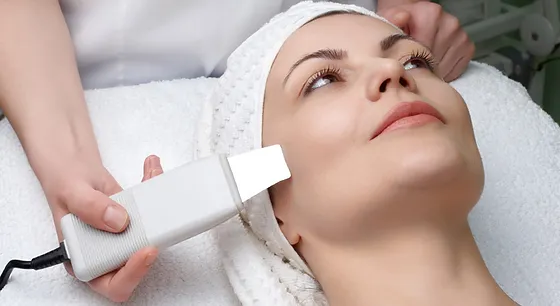A dermatologist is a healthcare provider who specializes in treating diseases related to nails, hair and skin. Also, they treat the damaged sensitive tissue that lines your eyelids, nose and mouth.
Before making an appointment, it’s critical to verify that the dermatologist is fully licensed or certified. Some professionals who work in spas and beauty parlors proclaim themselves as dermatologists but lack the required credentials. Being a dermatologist necessitates having a broad base of clinical knowledge, such as the different internal health issues that might manifest as skin signs.
You may be surprised to know that dermatologists treat around 3000 conditions. However, here will discuss major health issues that need the immediate assistance of dermatologists in Mohali or any other city.
List Of Problems Treated By Dermatologists
Acne
In India, acne is the most prevalent skin disorder. On the face, it creates a variety of imperfections. Acne consists of cysts, pimples, and black & white heads. These develop because of abundant sebum production from oil glands present in the skin. It suffocates pores. Another potential culprit is bacteria. Although acne is frequently seen in adolescence, anybody may get it. Normal locations for blemishes include the face, back, chest, and shoulders. Although it’s not fatal, acne may be disturbing. It may potentially result in lifelong scarring if untreated. Oral medicine, chemical peels, prescription lotions or gels, laser treatment, and oral medication are all forms of treatment.
Eczema
Eczema is an umbrella term for a number of chronic skin ailments that leads to skin inflammation. It may be excruciatingly unpleasant and upsetting.Skin irritation, dryness and redness are key signs of Eczema. Atopic dermatitis is the most common form of eczema and mostly affects children and infants. On the face and other regions of their bodies, children may acquire a rash.
The rash may be fluid-leaky. Also, itching caused by this health problem makes kids sleep at odd hours. With certain tests and physical examinations, dermatologists can identify eczema. The problem can be improved with medications, ointments, and of course with proper skin care.
Psoriasis
An issue with innate immunity is the cause of psoriasis. This problem causes skin cells to develop at a high rate. They then amass rapidly on the skin’s surface and are referred to as Plaques. They look thick, scaly and reddish in color. They could hurt or itch. They typically show up on the scalp, face, thighs, knees, and elbows and on the soles of the feet, sometimes. Although less frequently, they might appear on the mouth, genitalia, or fingernails. Psoriasis may be identified by dermatologists by examining a sample of skin with a microscope. Creams can calm the skin and promote skin healing. The dermatologist may also prescribe oral medications to dampen the hyperactive immune system.
Hair Loss
The average person loses up to 100 strands every day. Nevertheless, bald spots or thinning hair can be indicators of disease. Hair loss can be caused by stress, conception, various medical conditions, and more. Additionally, it may be a hereditary disorder. A dermatologist can take blood tests and look at a sample of scalp tissue with the help of a microscope to determine the reason for hair loss. To lessen hair loss or resume growth, dermatology specialists may recommend medications, laser treatments, and surgical procedures.
Skin Cancer
The most prevalent and common form of cancer is skin cancer. If detected early, it is also the easiest ailment to treatHowever, Melanoma is a very serious type of cancer It may be catastrophic. So, you must see a dermatologist as soon as you recognize the warning signs. Skin growths that alter in size, shape, color, thickness, or texture are among them. An uncontrolled growth that is broader than a pencil eraser is a primary warning sign of melanoma. Visit a dermatologist to examine any skin lesions that scab, crust, itch, pain, or bleed persistently.
It helps to increase the circulation of your skin and also open pores.
Most importantly, take time out for yourself and visit a dermatologist who can suggest an appropriate treatment for your skin type. There are many treatments available, varying from topical creams, peels, PRP therapy, and lasers which can help.
Varicose Veins
Varicose veins are enlarged, distorted, and painful veins that develop when the veins’ valves deteriorate or are destroyed. Varicose or spider veins typically seem elevated or bulging and grow on the legs. They can make you more vulnerable to skin sores and blood clots. Age, being overweight, and leading a sedentary lifestyle all raise the chance of developing varicose veins. On the skin, spider veins can resemble a network of fine red or blue threads.
They often pose less of a major health risk and more of an aesthetic problem. Spider veins can develop as a result of a blood backlog, hormone imbalances, sun exposure, or injury. The treatment may include taking medication, changing one’s lifestyle, and using support stockings. Experienced dermatologists can also inject a drug to dissolve a problematic vein. Other alternatives include laser therapy and surgery.
A Final Verdict-:
The above-stated ailments are just the tip of the iceberg. Apart from these, dermatologists also treat wrinkles, dandruff, fragile nails, rashes, sagging skin and much more. So, find out the best dermatology specialist if you are experiencing any of the problems highlighted in this article.
Read more :- https://magzined.com/







